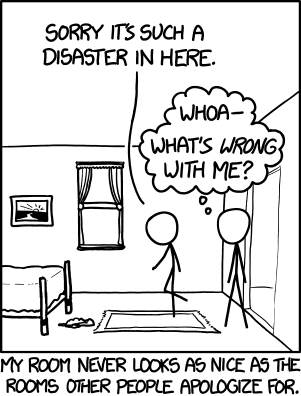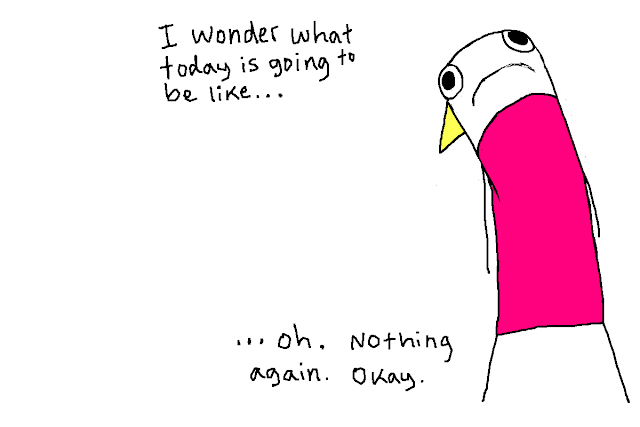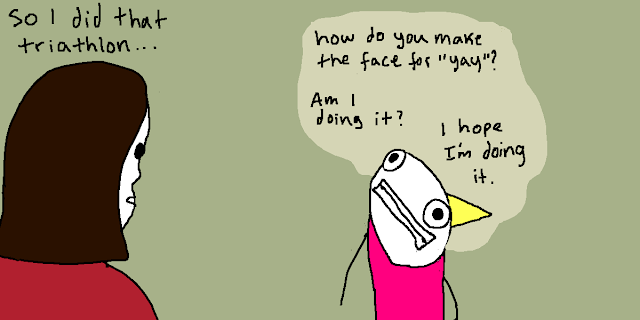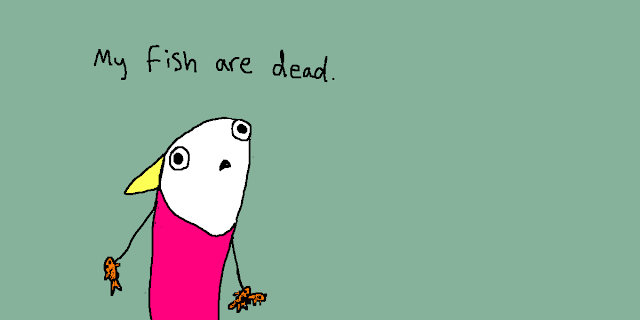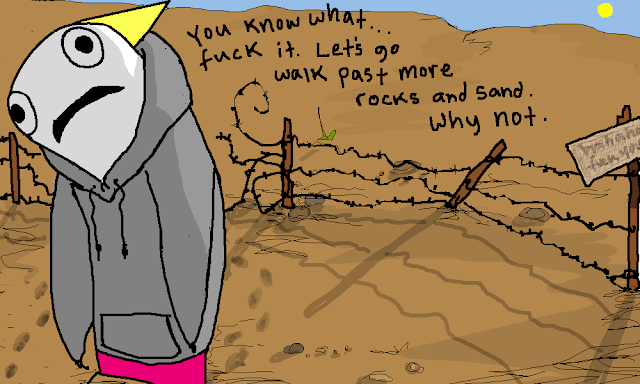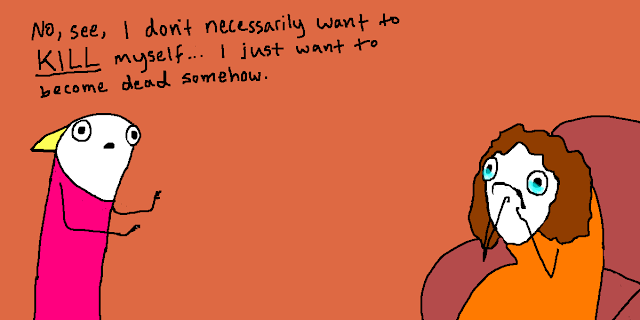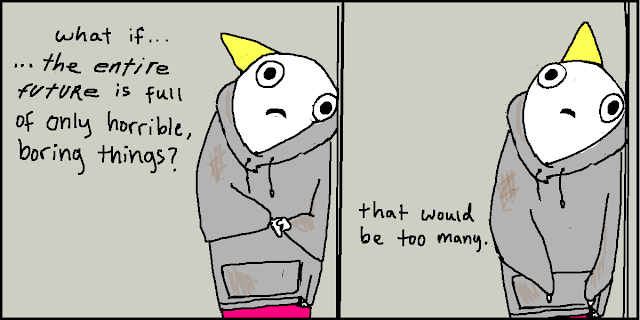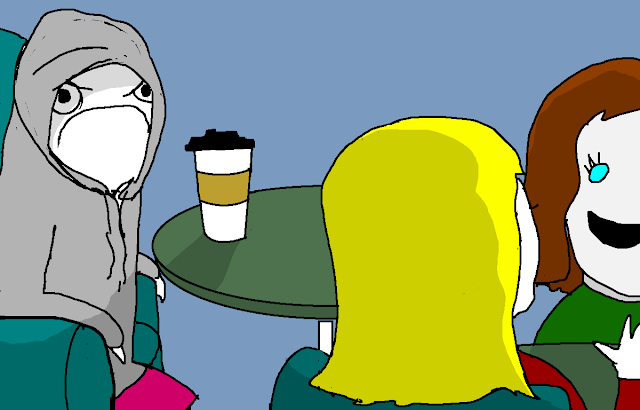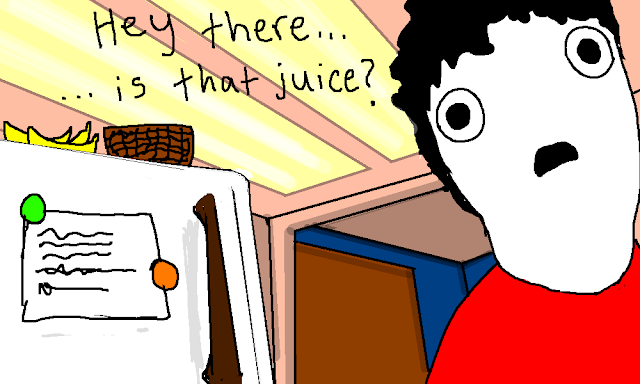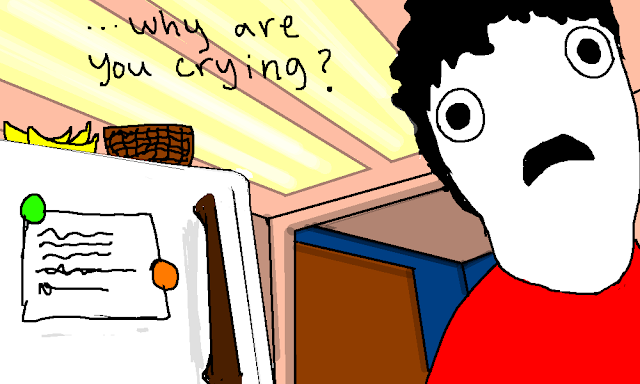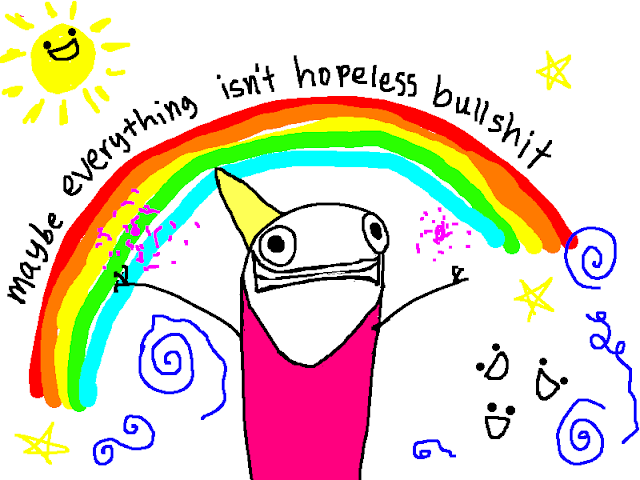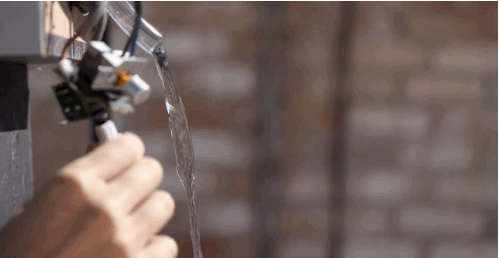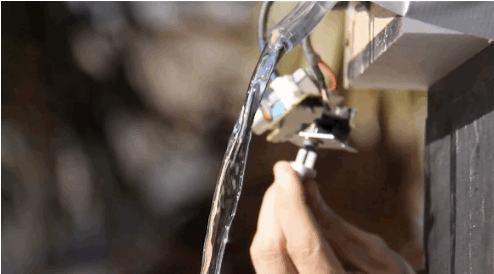Shared posts
rOpenSci News Digest, May 2023
Jon HarmonOh hey! That Software Development Corner is me! https://ropensci.org/blog/2023/05/19/ropensci-news-digest-may-2023/#package-development-corner
This tweet perfectly summarizes today’s Obamacare hearing
The Energy and Commerce Committee is now a bit more than two hours into its hearing on HealthCare.gov. If you've missed it, this tweet pretty much sums up the proceedings:

To be fair, that's not just true for Republicans on the E&C Committee. It's true for the Democrats, too. Most Republicans have spent the hearing showing that they've spent little or no time trying to understand HealthCare.gov's problems and they're even less interested in fixing them. But most Democrats have spent the hearing accusing Republicans of bad faith and reminding people that the GOP just shut down the government. For the most part, the assembled contractors have retreated behind a haze of acronyms, optimistic spin and uncomfortable silences.
(Two quick exceptions: Fred Upton, the Republican chairman of the committee, has done an excellent job. And Diana DeGette, one of the top Democrats on the committee, actually seemed upset about the problems of HealthCare.gov rather than about the Republicans trying to take political advantage of those problems.)
And that's not surprising. The problem with this hearing is that the parties have the wrong incentives for it. Democrats have a policy interest in fixing HealthCare.gov's problems but a political interest in downplaying their severity. Republicans have a policy interest in seeing the problems fester — and in creating new ones — but a political interest in hyping them. The result is that the party that wants to talk about what's wrong with HealthCare.gov doesn't want to actually figure out how to fix it while the party that wants to fix it doesn't want to talk about it.
On the bright side, Frank Pallone, a New Jersey Democrat, did tell Michigan Republican Joe Barton that he "will not yield to this monkey court!" So at least that happened in Congress today.
Yes, terrorists could have hacked Dick Cheney’s heart
On "60 Minutes" this Sunday, former Vice President Dick Cheney revealed that his doctor ordered the wireless functionality of his heart implant disabled due to fears it might be hacked in an assassination attempt. And despite literally being a scenario from Homeland, that's a pretty valid fear. Read more at The Switch.
The GOP’s income verification ‘concession’ is meaningless

(Photo by Jonathan Alcorn/Reuters)
The primary reason our federal government closed for 16 days and came very close to defaulting on its debt obligation was a dispute over whether to fund the new health-care law. Now the two parties have reached a deal to end the shutdown, and the one change made to President Obama's signature health legislation as part of the deal won't actually change anything at all.
The change centers on what the Department of Health and Human Services does to verify incomes submitted by applicants in the new marketplace. This is important because, without income verification, shoppers could say they earn a tiny salary so that they can net a higher level of insurance subsidies.
Now, this would not be the best-laid plan for scamming the government. Anyone who submitted a falsely lower income level would likely have to pay those subsidies back to the federal government after filing an income tax report that revealed higher earnings. They could accused of fraud and face penalties. But, for at least a few months, they could get a cheaper insurance plan.
Over the summer, Health and Human Services scaled back some of the income verification requirements on the marketplace. Instead of auditing every applicant, HHS said, states would audit a statistically significant number of people who reported incomes that were strikingly different than what federal records showed.
Republicans balked, arguing that this would allow for rampant fraud. House Republicans passed legislation that would require the HHS inspector general to set up a new income verification system before any subsidies could go out. That could have created a big obstacle for the health-care law.
But that demand didn't make it into the agreement signed by the president Wednesday night. Instead, the deal basically requires two submitted reports in the course of the next year. Health and Human Services Secretary Kathleen Sebelius is due to submit the first report by Jan. 1, which must detail "the procedures employed by American Health Benefit Exchanges to verify eligibility for credits and cost-sharing reductions described in subsection."
Six months later, the HHS inspector general is required to submit a report "regarding the effectiveness of the procedures and safeguards provided under the Patient Protection and Affordable Care Act for preventing the submission of inaccurate or fraudulent information by applicants."
Phil Klein at the Washington Examiner has described this proposal as a "watered down" version of the original House plan. "The version currently being discussed would simply ask Secretary of Health and Human Services Kathleen Sebelius to certify that proper measures are in place," he writes. "At that point, the government can start releasing subsidies."
There's nothing about the income verification measures that passed Wednesday night that will change Obamacare, aside from a few staff members at Health and Human Services devoting some hours to gathering the data and writing up these reports. And that probably explains why Democrats were okay with passing this language in the first place.
The ‘non-essential’ parts of government that shut down are actually quite essential
There’s a saying that “the federal government is basically an insurance company with an army.” And during the ongoing federal government shutdown, these basic functions are mostly still operating.

There's a lot more at stake than just parks (The Washington Post)
The people with guns and a claim to the state’s monopoly on violence show up to defend property arrangements at home and the national interests abroad. And, due to the way they are funded, the marquee social insurance programs, Social Security and Medicare, are still running.
So what is actually shut down? And how would we describe what functions are currently not being carried out?
It's hard to understand what the “non-essential state” actually is from current press coverage. The stories dominating the headlines are about national park closings and zoo cameras going offline, giving the sense that the "non-essential" parts of government are simply about facilitating leisure and vacations. And, like looking into the wrong end of a telescope, the stories of individual people and programs put on furlough doesn’t communicate to the public what kind of overall functions are being abandoned by the state during the shutdown.
So what kind of state has been shut down?
The state that regulates the economy
It’s impossible to imagine the economy without the state. The state’s role in the economy is massive, ranging from knowledge to rules to coordination to efficiency to determining the nature of property rights to checking market failures. But there are two modern trends that especially require a federal government to play an important role in the economy.
The first is the discovery and understanding of the business cycle during the Great Depression. As Timothy Shenk noted in the recent issue of Dissent, before the Great Depression, the word economy “was typically used as a synonym for efficiency—think of economy-class travel today. People rarely talked about the economy, and those who did generally used it as a synonym for the much more prominent concept ‘society.’ Within just a few decades, however, the economy had emerged as the central object of domestic politics.”
One reason is because policymakers started tracking national economic trends through measurements. Understanding that the economy is a connected thing, and that it can be functioning at high and low levels, was a great achievement of 20th-century economics. However it can only work if we are actively measuring it and responding with appropriate policy to ensure full employment and price stability.
As Bill McBride notes, in “the early stages of the [Great] Depression, policymakers were flying blind. But at least they recognized the need for better data, and took action….the House is depriving us of data, and right now we are flying blind.” There was no jobs report on Friday, and if the shutdown continues we could see no surveys conducted to generate the job numbers for next month’s report. As the Wall Street Journal reports, “[k]ey figures on international trade, inflation and retail sales will be postponed next week if the shutdown persists.”
The other related, important change that requires a federal presence is the move from markets based in local, “embedded” spaces, like small towns, to a national and global marketplace, where the ability to verify and coordinate requires a state presence.
These functions are not happening. To give an example, the government acts as a broker and verifier of income for mortgages. This coordination of information is not functioning, and an ongoing shutdown will delay new home mortgages in a very fragile market.
The government also provides public price data on a wide variety of commodities, facilitating trade across many people. As the Financial Times reported, with the U.S. Department of Agriculture down information on pig prices has disappeared, throwing the market into chaos.
As they note, “[t]he situation underscores the commodity trade’s reliance on the U.S. government for supply, demand and other fundamental data.” It also has implications for fairness, as the shutdown’s price opacity “may also empower meatpackers as they deal with farmers.” (Or in other words, the shutdown means you are getting ripped off on your bacon.)
The state that provides for basic needs
Though the big social insurance programs are still running, many federal programs that directly target those in the most need are either empty or running on fumes. Because of its ability to ensure a basic minimum, borrow and thus lean against the business cycle, and pool risk at the national level, the federal government plays an important role in providing for those most in need. This is at risk under the shutdown.
As Bryce Covert of Think Progress, explained in an e-mail, “Special Supplemental Nutrition Program for Women, Infants and Children, known as WIC, is perhaps the most important safety net program that's getting zero dollars from the shutdown. But Congress didn't extend TANF, which expired Sept. 30 too, so that's also getting zero dollars. And childcare subsidies, which rely on both federal grants and TANF dollars, are now also seeing no new money. There are other social service programs getting hit, like Head Start, Supplies for food pantries, Meals on Wheels.” That’s millions of people at risk for no good reason.
The state that provides for the public health
The growth of the modern state is tied to the awareness of public issues in health and the need to address them. The state has a responsibility to provide responses to a wide range of public issues including pollution, clean air and water, sanitation and epidemics, because there’s no way individuals alone can do this.
Yet this state is not showing up for work these days.The CDC is having trouble tracking food-borne illnesses under furloughs, it is no longer monitoring the spread of influenza and other infectious diseases. Meanwhile the National Institute for Health is turning away “200 patients each week from its clinical research center, including children with cancer.” The Environmental Protection Agency just stopped clean-ups at 505 Superfund hazardous waste sites sites in 47 states.
The state that invests
As Michael Lind of the New America Foundation documents in his recent economic history Land of Promise investments by the federal government have historically fueled the big technological waves in the United States. And this state is at risk during the shutdown.
It’s halting important scientific research across the country. It’s disrupting biomedical research; indeed the start-stop natures of our periodic crises makes basic research very difficult. An extended shutdown would affect the reliability of the nation's electric grid.
This isn’t just physical investments, but investments in people as well. As mentioned above, Head Start is getting cut. We know that cash benefits through the EITC for mothers significantly benefit the fate of young children. Beyond the basic inhumanity of it, cutting WIC is the equivalent of bombing factories and roads when it comes to destroying our nation’s capital.
There are a few takeaways. The first is that it is easy to miss this state. It sits in the background, showing important results in what doesn’t happen (outbreaks), in what happens on far better terms (trade), or what doesn’t pay off for some time to come (investments and research). The constant uncertainty of moving from one crisis to the next that are now a feature of modern governance makes it harder to carry out these functions well. However if you are part of the current conservative movement, which finds these functions illegitimate for a state to carry out, this disruption is bonus.
The other is that these are the functions of the state that are hit under sequestration. Indeed, the cuts of the past years have fallen entirely on these functions of the state. In a globalized, 21st-century world, all of these functions will become more, not less, essential to a prosperous and just society. So why aren’t we funding them as if that was a priority?
Mike Konczal is a fellow at the Roosevelt Institute, where he focuses on financial regulation, inequality and unemployment. He writes a weekly column for Wonkblog. Follow him on Twitter here.
Don’t just raise the debt ceiling. Get rid of it forever.
As the debt-ceiling debate gets even more ludicrous, the need to defuse the debt-ceiling bomb forever becomes even more pressing.
The basic idea comes from a most unlikely source: Senate Minority Leader Mitch McConnell (R), who proposed in July 2011 to permit the president to unilaterally raise the debt ceiling unless Congress affirmatively voted to stop him. And even if Congress did vote to stop him, the president could veto, and then Congress would need to overturn his veto.
President Obama included McConnell's plan in one of his early fiscal-cliff offers.
There are a few differences between Obama's plan and McConnell's initial proposal. First, McConnell's forced the president to send Congress a package of spending cuts that were larger than his debt-ceiling increase, though it didn't matter whether they passed or not. The White House has dropped that. Second, McConnell's proposal was only good for three debt-ceiling bumps. Obama's team has removed that limit, so it works in perpetuity.
But the underlying mechanism remains the same: Congress can disapprove of the president's decision to raise the debt ceiling, but unless they can overturn his veto, they can't stop him.
The effect of this policy would, in general, be to finish off the debt ceiling. Republicans are laughing this off as a ridiculous, pie-in-the-sky proposal. McConnell abandoned this plan shortly after he proposed it, and he certainly doesn't support it now. But it's actually a great idea — one that could do more to protect our economy than anything else Congress could pass. Even better, it would cost us nothing. Measured by its cost-effectiveness, it's perhaps the best idea in American politics today.
The debt ceiling is an anachronism. It's an accountability mechanism from the days when Congress didn't much involve itself in federal budgeting. Today, Congress exerts full control over the federal budget. The debt ceiling isn't imposing accountability on the executive but calling into question whether Congress will pay the bills it has already chosen to incur.
But it's not an adorable anachronism, like grandfather clocks. It's a dangerous one, like bloodletting, lobotomies and burning people you suspect to be a witch. If we crash through the debt ceiling, a global financial crisis could — and likely will — result. Even once we return to sanity and begin paying our bills again, America's borrowing costs are likely to be permanently higher, and the market's confidence in our political system is likely to be permanently harmed. The Bipartisan Policy Center estimates that the near-miss we had in 2011 cost us $18.9 billion. That's $18.9 billion we spent for no reason. It didn't buy us one service or lower taxes by even a dime.
It's time to get rid of the debt ceiling. And don't take it from me. Take it from the policymakers who've had to deal with the debt ceiling, like Alan Greenspan:
DR. ALAN GREENSPAN: I have a more fundamental question. Why do we have a debt limit in the first place? We appropriate funds, we have tax law, and one reasonably adept at arithmetic can calculate what the debt change is going to be.
MR. GREGORY: Mm-hmm.
DR. GREENSPAN: The Congress and the president have signed legislation predetermining what that number is. Why we need suspenders and belts is something I've never understood. And ...
MR. GREGORY: But now that we've got them, the question is?
DR. GREENSPAN: Well, now, now that you've got them, the question essentially is: There is a major problem in cutting spending. And anything that works, in my regard, is probably helpful. The difficulty that I have is, you cannot have a position which stipulates that, "I will never allow the United States to default. But on the other hand, I will not allow the process to go forward unless there are additional actions with respect to the debt."
MR. GREGORY: So you can't let it default?
DR. GREENSPAN: Well, you can, but you shouldn't.
Former treasury secretary Robert Rubin agrees. As do some of his successors, including Larry Summers and Paul O'Neill. "It is hard to make a rational argument for the debt ceiling," O'Neill has said.
The "rational argument" for the debt ceiling is that the minority party can use it to extract policy concessions from the majority party, as Republicans did in 2011. In other words, the argument for the debt ceiling is that we should enter the American economy in a never-ending game of Russian roulette because whichever party a majority of Americans didn't vote for wants to keep its shot at the winnings. That's not a very good argument.
It's long past time to get rid of the debt ceiling, and the McConnell-Obama plan is as good a way as any to do it. It gives lawmakers more than a chance to avoid the fiscal cliff. It gives them a chance to end America's repeated flirtations with fiscal suicide.
This is an updated version of a piece Wonkblog published in 2012.
Physicists Discover Geometry Underlying Particle Physics
Jon HarmonI can't tell if this is awesome, not even wrong, or somewhere in between.
Read more of this story at Slashdot.
‘Arrested Development’ was a Communist utopia, and season four ruined it.

Tobias and Lindsay eat at C.W. Swappigans, a “barter restaurant,” with Marky Bark and DeBrie. (Netflix)
Humans will always have needs. What we won’t always have are unfulfilled needs. Throughout history we’ve faced a world defined by scarcity and lived in response to it. We’ve connived, killed and exploited one another, and struggled to even imagine a better way of living. But 10 years ago, Mitchell Hurwitz’s “Arrested Development” managed to conceive of what an escape from such a world might look like. The fourth season of the series, released yesterday on Netflix, shows how fragile that vision was.
Ensemble comedy is inherently communist in form. We’d love to troll Wonkblog readers with such a claim, but we’re actually serious — they operate on the same social logic. When this logic is at play in society at large, you have the Marxist ideal put to life: The free development of each is the condition of the free development of all; from each according to their ability, to each according to their need.
When it’s at work in a sitcom, you have the sort of format seen in shows like “Arrested Development,” “Seinfeld,” “NewsRadio” and “Friends.” In those series, the comedy is generated from a cast of equals. Every character doesn’t have the equal screen-time in every episode, but they do have the freedom to be truly different and exist fully in their own right, following their own path rather than laboring to merely advance the story of a main character.
In the first run of “Arrested Development,” Tobias, a former psychoanalyst, is able to pursue an unprofitable acting career and his latent homosexuality, Gob plans elaborate magic acts while fitfully dropping his tough-guy act, and Lindsay mercifully pursues her vanity projects outright rather than dressing them up as philanthropy. Ironically, it is living together in a socialized unit that allows them to dispense with airs of respectability and embrace their bizarre and hilarious selves. Once in a while, work is done — but mostly we’re operating in the realm of freedom.
To be clear, the point is not that we should literally do what the Bluths do, but that we should do how they do. Comedy has its own set of rules. Here, vice is virtue and virtue is vice. What’s important is its social logic, the way the actors relate to one another and their world. In ensemble comedy, the development of each is a precondition to the development of all.

Tobias Fünke, doing him. (Sam Urdank – FOX)
“Arrested Development” was a bit different from its peers. A show like “Friends,” with its isolation from scarcity in any meaningful sense, represents something like full communism. And paradoxically, this is what allowed it to act as apolitical wish-fulfillment: Its characters were freed from the struggle for material resources, dealing only with the other, more permanent, problems of the human condition. Sure, they worked jobs — increasingly fulfilling ones — but these were basically doled out to them by the plot from on high, much like their implausible multimillion-dollar apartments. The need to move money around, mortgage assets, mollify investors and pick up work never imposed its logic on the story the way it did in “Arrested Development.”
More than any other show, “Arrested Development” drew economics into its texture — harping on the corporate scandals of the day and constantly building plots around the Bluth family’s financial juggling. Consider the late third season episode “SOBs,” produced when it was clear that the show was in danger of cancellation. In that episode, a desperate Bluth fundraiser doubles as a direct plea for help from the series’ creators. It wasn’t a high point for “Arrested Development.” The quality of the show in the third season seemed to actually track its increasingly tenuous prospects, rolling out gags and characters more cruel, tasteless and grotesque than funny while circling a comedic black hole of self-reference.
Conceived as it was in the aftermath of the Enron scandal and during the early years of the Bush administration, no one would say the socioeconomic context of the first three seasons of “Arrested Development” was ideal. And yet the economy had stabilized and returned to a rate of growth healthy enough to sustain capital accumulation, steadily driving down the unemployment rate throughout the show’s lifespan.
The politics of the show were broadly progressive, featuring a rainbow coalition of decent, perpetually put-upon workers shaking their heads at the reckless and exploitative antics of the attention-starved actors, attorneys and petty aristocrats above them. Dark as those times were, looking back from the new season, the original run’s overarching criticism of the “war on terror,” the invasion of Iraq and torture seems almost like a luxury. It was perhaps possible to view the scandals, corruption and wars as an aberrant dip along what had been — and could once again be — a forward-moving society.
So what happens when a socioeconomically sensitive show about Orange County real estate developers collides with a devastating housing-led financial crash?
It’s not pretty.
The fourth season places the history of show, its characters and audience into brutal alignment: “Now the story of a family whose future was abruptly cancelled,” the new opening credits read. The intervening years weigh heavily as Ron Howard’s voice-over is tasked with propelling an otherwise inert narrative, giving us exhaustive details about the Bluths’ travails over the past few years. It’s the entertainment equivalent of being invited over to watch slides from your elderly neighbor’s Cape Cod vacation for eight hours.
Shattered is the collective, free-wheeling life of the Bluth family and the show’s underlying progressive optimism about the basic decency of the people. Whereas previously the series focused on attempts to hold the family together, here the episodes follow the efforts of individual Bluths to hold themselves together. The ensemble is all but gone. Where the show once had good fun with homosexuality while skewering casual bigotry, here the gay jokes fail to land, and feel labored and more than a little homophobic. Likewise, race factors more prominently than last time, with the jokes ranging from awkward to offensive. They’re almost never funny.
If there’s a single image that sums up the new season, it’s the capsized Queen Mary listing terminally in harbor. This is, in a word, a world without buoyancy.
It’s far from the only piece of apocalyptic imagery. The first three seasons of the show squeezed a lot of humor out of the exurban evangelical belief in the Rapture; the fourth season greets us with a vision of Michael as “left behind” in an isolated ghost town. Meanwhile, the family’s luxury penthouse has drifted into barbarism. A sometimes-squat for urban terrorists, its only true residents are Buster’s psychotic effigies of his mother and a predatory ostrich.
And in the background, it appears a race war is brewing, reaching full tilt at Cinco de Cuatro!, and even the Bluth model home’s formidable cache of Mike’s Hard Lemonade may not be enough to ride it out. It’s all blood, bruises and roofie-loops for the Bluth boys. All of this could have been good grist for dark comedy, but without the machinery of the ensemble in place, there was no mechanism to grind out laughs.
We’ve dealt with a lot over the past years — jobless rates over 10 percent, cuts hampering the social services we rely on, the massive burden of debt and foreclosure. Now that pain has come to one of the greatest comedies of all time. The spirit of “Arrested Development” is the recession’s latest casualty.
Update: the first sentence has been edited at the authors’ request.
Peter Queck is a contributor to Jacobin.
Bhaskar Sunkara is a senior editor at In These Times and the founding editor of Jacobin.
Birds and Dinosaurs
Jon HarmonI'm sure everyone saw this already, but I'm catching up, so you get to see it again!

Depression Part Two
Jon HarmonThis.
I didn't understand why it was fun for me, it just was.
But as I grew older, it became harder and harder to access that expansive imaginary space that made my toys fun. I remember looking at them and feeling sort of frustrated and confused that things weren't the same.
I played out all the same story lines that had been fun before, but the meaning had disappeared. Horse's Big Space Adventure transformed into holding a plastic horse in the air, hoping it would somehow be enjoyable for me. Prehistoric Crazy-Bus Death Ride was just smashing a toy bus full of dinosaurs into the wall while feeling sort of bored and unfulfilled. I could no longer connect to my toys in a way that allowed me to participate in the experience.
Depression feels almost exactly like that, except about everything.
At first, though, the invulnerability that accompanied the detachment was exhilarating. At least as exhilarating as something can be without involving real emotions.
The beginning of my depression had been nothing but feelings, so the emotional deadening that followed was a welcome relief. I had always wanted to not give a fuck about anything. I viewed feelings as a weakness — annoying obstacles on my quest for total power over myself. And I finally didn't have to feel them anymore.
But my experiences slowly flattened and blended together until it became obvious that there's a huge difference between not giving a fuck and not being able to give a fuck. Cognitively, you might know that different things are happening to you, but they don't feel very different.
Which leads to horrible, soul-decaying boredom.
I tried to get out more, but most fun activities just left me existentially confused or frustrated with my inability to enjoy them.
Months oozed by, and I gradually came to accept that maybe enjoyment was not a thing I got to feel anymore. I didn't want anyone to know, though. I was still sort of uncomfortable about how bored and detached I felt around other people, and I was still holding out hope that the whole thing would spontaneously work itself out. As long as I could manage to not alienate anyone, everything might be okay!
However, I could no longer rely on genuine emotion to generate facial expressions, and when you have to spend every social interaction consciously manipulating your face into shapes that are only approximately the right ones, alienating people is inevitable.
Everyone noticed.
It's weird for people who still have feelings to be around depressed people. They try to help you have feelings again so things can go back to normal, and it's frustrating for them when that doesn't happen. From their perspective, it seems like there has got to be some untapped source of happiness within you that you've simply lost track of, and if you could just see how beautiful things are...
At first, I'd try to explain that it's not really negativity or sadness anymore, it's more just this detached, meaningless fog where you can't feel anything about anything — even the things you love, even fun things — and you're horribly bored and lonely, but since you've lost your ability to connect with any of the things that would normally make you feel less bored and lonely, you're stuck in the boring, lonely, meaningless void without anything to distract you from how boring, lonely, and meaningless it is.
But people want to help. So they try harder to make you feel hopeful and positive about the situation. You explain it again, hoping they'll try a less hope-centric approach, but re-explaining your total inability to experience joy inevitably sounds kind of negative; like maybe you WANT to be depressed. The positivity starts coming out in a spray — a giant, desperate happiness sprinkler pointed directly at your face. And it keeps going like that until you're having this weird argument where you're trying to convince the person that you are far too hopeless for hope just so they'll give up on their optimism crusade and let you go back to feeling bored and lonely by yourself.
And that's the most frustrating thing about depression. It isn't always something you can fight back against with hope. It isn't even something — it's nothing. And you can't combat nothing. You can't fill it up. You can't cover it. It's just there, pulling the meaning out of everything. That being the case, all the hopeful, proactive solutions start to sound completely insane in contrast to the scope of the problem.
It would be like having a bunch of dead fish, but no one around you will acknowledge that the fish are dead. Instead, they offer to help you look for the fish or try to help you figure out why they disappeared.
The problem might not even have a solution. But you aren't necessarily looking for solutions. You're maybe just looking for someone to say "sorry about how dead your fish are" or "wow, those are super dead. I still like you, though."
I started spending more time alone.
Perhaps it was because I lacked the emotional depth necessary to panic, or maybe my predicament didn't feel dramatic enough to make me suspicious, but I somehow managed to convince myself that everything was still under my control right up until I noticed myself wishing that nothing loved me so I wouldn't feel obligated to keep existing.
It's a strange moment when you realize that you don't want to be alive anymore. If I had feelings, I'm sure I would have felt surprised. I have spent the vast majority of my life actively attempting to survive. Ever since my most distant single-celled ancestor squiggled into existence, there has been an unbroken chain of things that wanted to stick around.
Yet there I was, casually wishing that I could stop existing in the same way you'd want to leave an empty room or mute an unbearably repetitive noise.
That wasn't the worst part, though. The worst part was deciding to keep going.
When I say that deciding to not kill myself was the worst part, I should clarify that I don't mean it in a retrospective sense. From where I am now, it seems like a solid enough decision. But at the time, it felt like I had been dragging myself through the most miserable, endless wasteland, and — far in the distance — I had seen the promising glimmer of a slightly less miserable wasteland. And for just a moment, I thought maybe I'd be able to stop and rest. But as soon as I arrived at the border of the less miserable wasteland, I found out that I'd have to turn around and walk back the other way.
Soon afterward, I discovered that there's no tactful or comfortable way to inform other people that you might be suicidal. And there's definitely no way to ask for help casually.
I didn't want it to be a big deal. However, it's an alarming subject. Trying to be nonchalant about it just makes it weird for everyone.
I was also extremely ill-prepared for the position of comforting people. The things that seemed reassuring at the time weren't necessarily comforting for others.
The next few weeks were a haze of talking to relentlessly hopeful people about my feelings that didn't exist so I could be prescribed medication that might help me have them again.
And every direction was bullshit for a really long time, especially up. The absurdity of working so hard to continue doing something you don't like can be overwhelming. And the longer it takes to feel different, the more it starts to seem like everything might actually be hopeless bullshit.
My feelings did start to return eventually. But not all of them came back, and they didn't arrive symmetrically.
I had not been able to care for a very long time, and when I finally started being able to care about things again, I HATED them. But hatred is technically a feeling, and my brain latched onto it like a child learning a new word.
Hating everything made all the positivity and hope feel even more unpalatable. The syrupy, over-simplified optimism started to feel almost offensive.
Thankfully, I rediscovered crying just before I got sick of hating things. I call this emotion "crying" and not "sadness" because that's all it really was. Just crying for the sake of crying. My brain had partially learned how to be sad again, but it took the feeling out for a joy ride before it had learned how to use the brakes or steer.
At some point during this phase, I was crying on the kitchen floor for no reason. As was common practice during bouts of floor-crying, I was staring straight ahead at nothing in particular and feeling sort of weird about myself. Then, through the film of tears and nothingness, I spotted a tiny, shriveled piece of corn under the refrigerator.
I don't claim to know why this happened, but when I saw the piece of corn, something snapped. And then that thing twisted through a few permutations of logic that I don't understand, and produced the most confusing bout of uncontrollable, debilitating laughter that I have ever experienced.
I had absolutely no idea what was going on.
My brain had apparently been storing every unfelt scrap of happiness from the last nineteen months, and it had impulsively decided to unleash all of it at once in what would appear to be an act of vengeance.
That piece of corn is the funniest thing I have ever seen, and I cannot explain to anyone why it's funny. I don't even know why. If someone ever asks me "what was the exact moment where things started to feel slightly less shitty?" instead of telling a nice, heartwarming story about the support of the people who loved and believed in me, I'm going to have to tell them about the piece of corn. And then I'm going to have to try to explain that no, really, it was funny. Because, see, the way the corn was sitting on the floor... it was so alone... and it was just sitting there! And no matter how I explain it, I'll get the same, confused look. So maybe I'll try to show them the piece of corn - to see if they get it. They won't. Things will get even weirder.
Anyway, I wanted to end this on a hopeful, positive note, but, seeing as how my sense of hope and positivity is still shrouded in a thick layer of feeling like hope and positivity are bullshit, I'll just say this: Nobody can guarantee that it's going to be okay, but — and I don't know if this will be comforting to anyone else — the possibility exists that there's a piece of corn on a floor somewhere that will make you just as confused about why you are laughing as you have ever been about why you are depressed. And even if everything still seems like hopeless bullshit, maybe it's just pointless bullshit or weird bullshit or possibly not even bullshit.
Pressure Cooker
Jon HarmonWoah.
Pressure Cooker
Am I right to be afraid of pressure cookers? What's the worst thing that can happen if you misuse a pressure cooker in an ordinary kitchen?
—Delphine Lourtau
The worst thing?

Pressure cookers are dangerous.
They can explode, in a sense, but not as violently as you might fear (or hope). The pressure inside a consumer cooker doesn’t go above about two atmospheres—about the pressure inside a can of soda. Those levels can be dangerous, but they’re generally not high enough to cause the metal to violently rupture.
So what makes a pressure cooker dangerous?
Imagine a world where Pepsi is scalding hot. Now imagine that someone shakes up a can of Pepsi and sets it in front of you.

That’s the real threat from a pressure cooker: If the seal fails (or the lid is opened too early), it can spray scalding stew in all directions.
But it’s not really an explosion.
The blast couldn’t even fling the lid very far. If you mounted a rifle-style barrel on a pressure cooker, even in ideal circumstances it wouldn’t be able to fire the lid much faster than you could throw it. Any potato cannon (especially this one) could do better.
Of course, the question wasn’t about whether a pressure cooker is likely to explode. It was about what the worst thing that could happen was.
If you disable the safety valve, there are plenty of ways to produce much more dangerous pressures. You could completely fill it with water and heat it, fill it with Drano and aluminum foil, or just pump in air from a compressor.
The result would depend on your pressure cooker. Chances are it would start to leak. If it didn’t, and it somehow stayed together up a few hundred atmospheres (pressures typical of scuba tank), when it finally ruptured it could easily kill you.

Even so, that’s far from the worst thing you could do with a pressure cooker.
Frankly, there are so many options it would be impossible to survey them all. But for my money, one of the most horrifying things you could do is this:
(Note: Never try this, for reasons which will become obvious in a moment.)
Fill the cooker with oxygen up to 5 PSI, then pump in fluorine until it starts escaping through the safety valve. Put the vessel over an open flame until it reaches 700°C (That’s °C, not °F. Yes, this will probably set off the smoke alarm.) Now, pump the hot gas over a liquid-oxygen-cooled stainless steel surface.
The procedure here is a little tricky, but if you do things right, the gas will condense into dioxygen difluoride (O2F2).
And that stuff is awful.
Ray Bradbury taught us that paper burns when exposed to oxygen at temperatures above 451°F. Dioxygen difluoride is so volatile that it makes almost any organic substance ignite and explode at any temperature hotter than 300°F below zero. It can literally make ice catch fire.
In an article about O2F2, Chemistry blogger Derek Lowe (of the excellent In The Pipeline) used phrases like “violently hideous”, “deeply alarming”, and “chemicals that I never hope to encounter”. Another article refers to fluorine as “the gas of Lucifer”, and lists chemists who were poisoned or blown up while attempting to work with it.
If your house is heated by natural gas, and it happens to contain hydrogen sulfide, you could pipe some of it into your container of O2F2. In addition to a massive explosion, this will also produce a cloud of hydrogen fluoride gas. Hydrogen fluoride can dissolve human tissue on contact, starting with your lungs and corneas.
As Lowe points out, the chemistry of this kind of reaction (O2F2 and sulfides) is largely unexplored.
Which gives us an answer to our question. What’s the worst thing that can happen in a pressure cooker?

Science.
Spin Your Own Cotton Candy with an Old Hard Drive
Jon HarmonThis seemed like something Laura might find interesting.
 If you've ever watched someone make cotton candy being made at the carnival, you know it requires an incredibly fast motor to spin the machine and create the floss-like fibers of the candy. As it turns out, a standard hard drive spins even faster, and serves as a perfect base for your own DIY cotton candy machine. More »
If you've ever watched someone make cotton candy being made at the carnival, you know it requires an incredibly fast motor to spin the machine and create the floss-like fibers of the candy. As it turns out, a standard hard drive spins even faster, and serves as a perfect base for your own DIY cotton candy machine. More » itscolossal: This is what happens when you run water through a...
Jon HarmonWoah! Physics question?
![/bu|[rn]t|[coy]e|[mtg]a|j|iso|n[hl]|[ae]d|lev|sh|[lnd]i|[po]o|ls/ matches the last names of elected US presidents but not their opponents. /bu|[rn]t|[coy]e|[mtg]a|j|iso|n[hl]|[ae]d|lev|sh|[lnd]i|[po]o|ls/ matches the last names of elected US presidents but not their opponents.](http://imgs.xkcd.com/comics/regex_golf.png)

